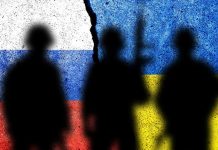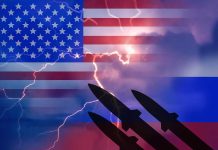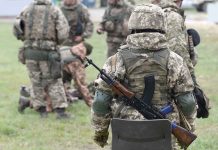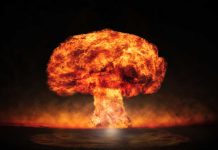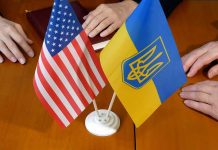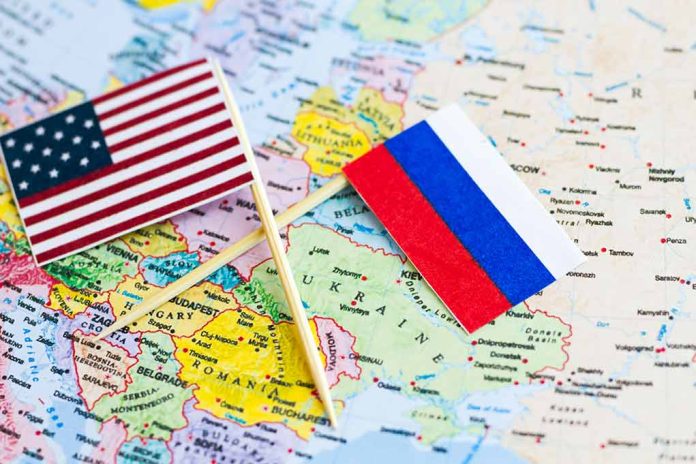
US and Russian officials are set to meet in Saudi Arabia for talks on ending the Ukraine war, but Ukraine itself has been left out of the discussions.
Top Takeaways
- US-Russia talks on Ukraine conflict to be held in Saudi Arabia without Ukraine’s participation
- President Trump ended a three-year freeze on direct US-Russia contact with a call to Putin
- European leaders not invited; will meet separately in Paris
- Ukraine insists on involvement in any peace negotiations
- Concerns arise over potential US concessions to Russia
Unexpected Exclusion of Ukraine from Peace Talks
In a surprising turn of events, high-ranking officials from the United States and Russia are scheduled to meet Tuesday in Saudi Arabia to discuss the ongoing conflict in Ukraine. However, the talks have stirred controversy as Ukraine, the country at the center of the conflict, has not been invited to participate. This development marks a significant shift in the approach to resolving the almost three-year-long war that has devastated Ukraine and strained international relations.
The decision to exclude Ukraine from these crucial talks has raised eyebrows and concerns among international observers. Ukrainian President Volodymyr Zelensky has been vocal about his country’s stance, stating emphatically that he will “never accept any decisions between the United States and Russia about Ukraine, never.” This statement underscores the tension and potential complications that may arise from negotiations conducted without Ukraine’s direct involvement.
Russian President Vladimir Putin has recently sent his foreign minister, Sergey Lavrov, to Saudi Arabia for important discussions. This visit comes at a time when tensions between Russia and the United States are on the rise. The meeting is significant…https://t.co/hgKTiCeq1O
— USNewsper (@USNewsper) February 17, 2025
US Delegation and Diplomatic Efforts
The US delegation to these talks includes Secretary of State Marco Rubio and National Security Advisor Mike Waltz. Additionally, White House Middle East envoy Steve Witkoff is traveling to Saudi Arabia for the discussions. President Donald Trump has taken a personal interest in the matter, having recently held a lengthy phone call with Russian President Vladimir Putin, which he described as lasting “for a very extended period, like about three hours.”
This direct communication between Trump and Putin marks the end of a three-year freeze on high-level US-Russia contact. The President has expressed optimism about the talks, stating, “we’re working to get it done.” However, the exact details of what “it” entails remain unclear, leaving room for speculation about potential concessions or agreements that might be discussed without Ukraine’s input.
European Response and Separate Meetings
The exclusion of European leaders from the US-Russia talks has prompted a separate meeting in Paris. French President Emmanuel Macron will host an informal gathering to discuss Ukraine and European security. This meeting will include notable figures such as UK Prime Minister Keir Starmer and German Chancellor Olaf Scholz. The division of these diplomatic efforts has raised questions about the unity of the Western approach to the Ukraine conflict.
Concerns Over US Policy and European Defense
The Trump administration’s approach to these negotiations has sparked concerns among the Europeans. There are fears that the US might make concessions to Russia without fully considering Ukraine’s interests or those of its European partners. These worries are compounded by statements from US officials stating that Ukraine’s aspirations for NATO membership are impractical and that a return to pre-2014 borders is unlikely.
Adding to the complexity of the situation, US Vice-President JD Vance has urged Europe to increase its defense contributions. This call for greater European military self-reliance comes at a time when the continent is grappling with the realities of a protracted conflict on its eastern flank.
As these high-stakes negotiations unfold, the international community watches closely, hoping for a peaceful resolution to a conflict that has already caused significant loss of life and disrupted global stability. The outcome of these talks could have far-reaching implications for Ukraine, Europe, and the future of international relations.


